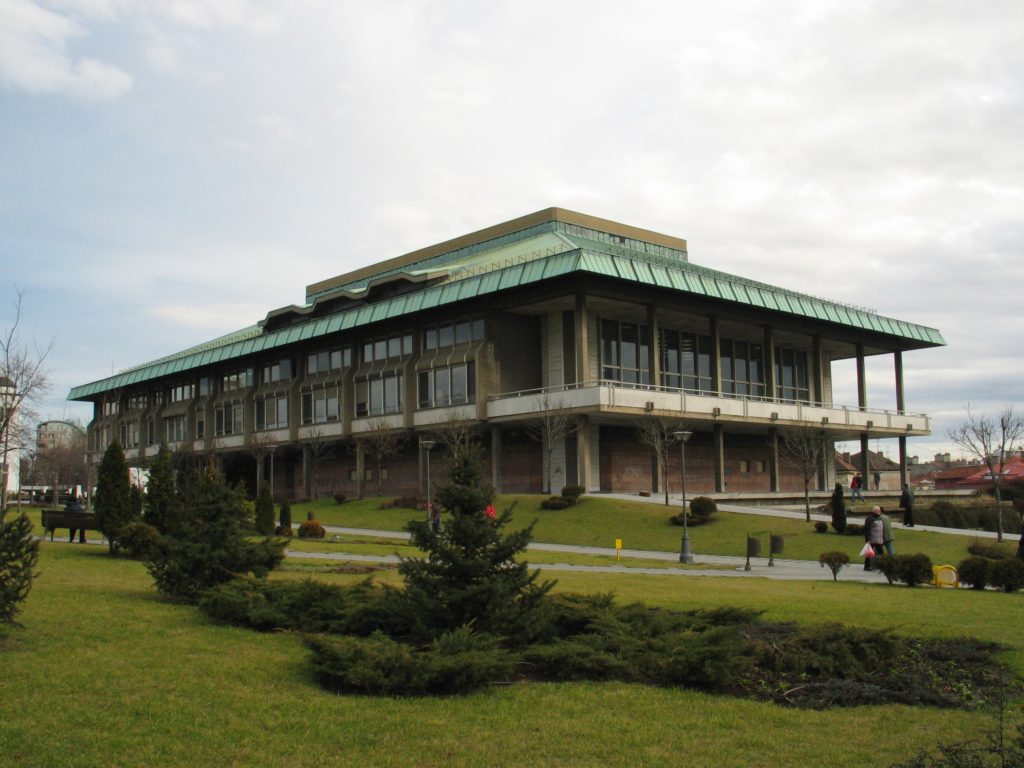
Visits to the National Theatre in Belgrade: Historical Opera Recordings from 1969 to 1989 (ARSC – Association for Recorded Sound Collections)
Opera is one of the most significant forms of stage music. It is born and lives within the theatre hall. The audience watching an opera performance experiences strong emotional, auditory and visual immersion that lingers on in their memory. However, such an experience cannot be retold, so it remains inaccessible to those who haven’t been to a performance.
The National Library of Serbia took a significant step towards preserving the audio heritage on both the national and international levels by engaging in a project focused on the digitisation of audio tapes containing unique recordings of opera performances that took place at the National Theatre in Belgrade. The project is titled Visits to the National Theatre in Belgrade: Historical Opera Recordings from 1969 to 1989. The performances of highly significant foreign and domestic opera singers have been preserved thanks to the efforts of Mr Husnija Kurtović, a professor of acoustics and a true opera enthusiast who attended the performances with a cassette recorder and microphone from the late 1960s. His collection comprises over 300 audio tapes. The National Library of Serbia received 122 tapes as a gift from Professor Kurtović. They have all been digitised within this project. The expected number of recorded opera performances (complete or partial) to be digitised within this project amounts to about 140. They have not been accessible to the public until now. With the grant and wholehearted support from the Association for Recorded Sound Collections (ARSC), experts and the general public will have the opportunity to revive the past by listening to the voices of Plácido Domingo, Mario Del Monaco, Elena Obraztsova, Luciano Pavarotti and many other singers who have visited our country, as well as numerous domestic singers like Radmila Bakočević, Živan Saramandić, Milka Stojanović, Biserka Cvejić and many others.
Opera is a distinctive form of musical art, and these recordings serve as priceless testimonials of the musical scene and performances held in Belgrade from 1969 to 1989. They also offer insight into the broader cultural ambience that characterised Belgrade during that time.
According to the grant terms, the National Library of Serbia is obliged to share the recordings with four other international and domestic institutions dedicated to the preservation of the audio cultural heritage. Therefore, the recordings and all accompanying project outputs (including the digital copies of Professor Kurtović’s catalogue, personal notes and programmes) will be gifted to the National Theatre in Belgrade, the Musicological Institute of the Serbian Academy of Sciences and Arts in Belgrade, as well as the Sound Archive of the British Library in London and the Library of Congress in Washington.
The project will last two years (March 2015 – March 2017).
Upon project completion, the collection of the recordings and accompanying material will be available on the Digital Library.
Mr Vesna Aleksandrovic,
Curator of the Collection of Sheet Music, Audio and Audio-visual Materials with the National Library of Serbia

